Kong Plantina Mujai and I sit in bright sunshine with a pair of young Mei-Ramew volunteers who kindly act as interpreters. I meet this mother of ten, beautifully turned out in her traditional dress, at her home village Khweng, located about two hours away from Shillong. We sip on freshly brewed local green tea served in hollow bamboo stems and take bites of boiled yam and refreshing starfruit drizzled with a light sprinkling of spices offered by the hospitable villagers, as we speak. 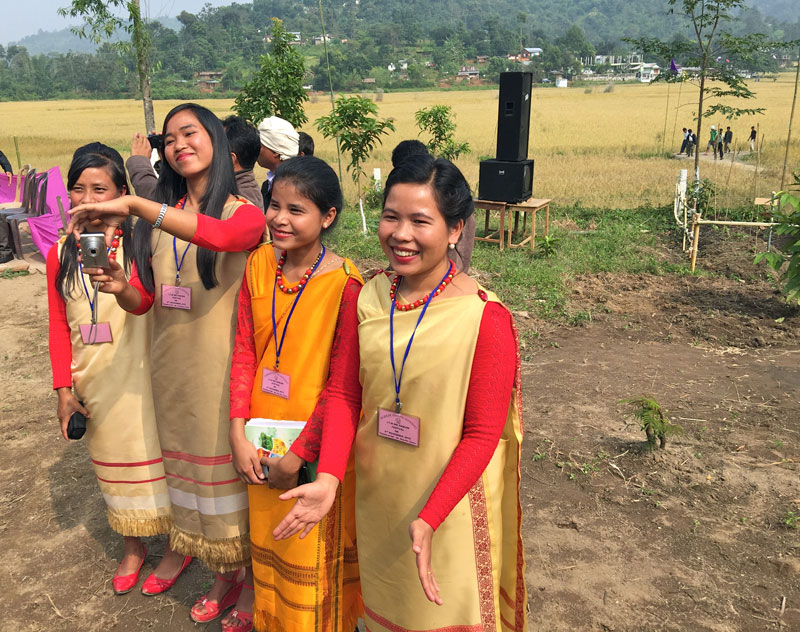 Plantina’s is one of the 100 households that make up this village which was originally named “khongweng”, describing the wide, full curve of the road that gives you a view of the entire community against the backdrop of rice fields, streams, forests and cloud covered hills. This is a community of farmers and Eri silk weavers, although most of the villagers also hold jobs in the government.
Plantina’s is one of the 100 households that make up this village which was originally named “khongweng”, describing the wide, full curve of the road that gives you a view of the entire community against the backdrop of rice fields, streams, forests and cloud covered hills. This is a community of farmers and Eri silk weavers, although most of the villagers also hold jobs in the government. 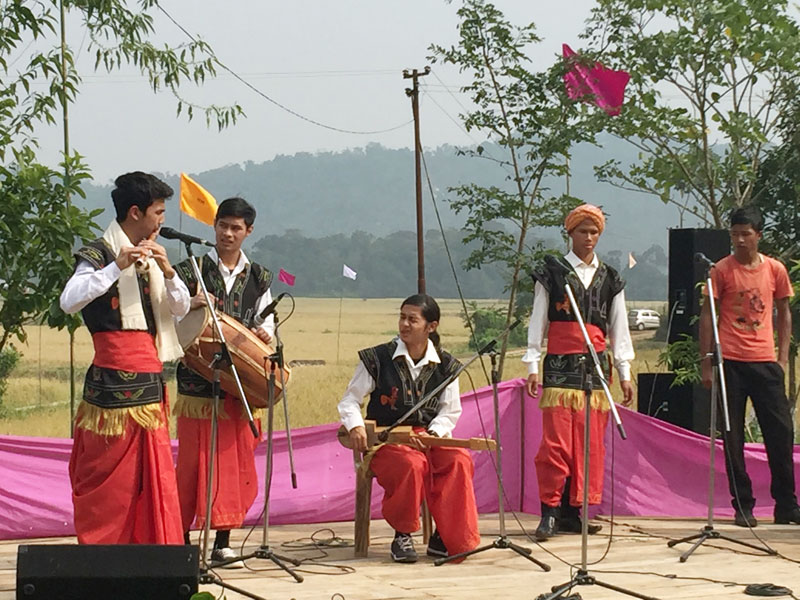 Just two days ago, Plantina had cooked and served small helpings of deep-fried Eri silkworms and silkworm chutney paired with steamed rice cakes at the Insect Tasting Workshop held on the second day of the Indigenous Terra Madre. There, she gave a clear description of the food that was strange to say the least, something that most of us were tasting for the first time, but had been part of the diet of the people of the Khasi hills for generations. What struck me immediately about Plantina was her confidence and lack of hesitation in speaking about a food that may have been repulsive or disgusting, to a roomful of strangers. Perhaps not too surprising, as Kong Plantina belongs to a matriarchal society, where women have a strong position in the life of the community, a role that has been described as one marked by “consensus and cooperation” and egalitarianism.
Just two days ago, Plantina had cooked and served small helpings of deep-fried Eri silkworms and silkworm chutney paired with steamed rice cakes at the Insect Tasting Workshop held on the second day of the Indigenous Terra Madre. There, she gave a clear description of the food that was strange to say the least, something that most of us were tasting for the first time, but had been part of the diet of the people of the Khasi hills for generations. What struck me immediately about Plantina was her confidence and lack of hesitation in speaking about a food that may have been repulsive or disgusting, to a roomful of strangers. Perhaps not too surprising, as Kong Plantina belongs to a matriarchal society, where women have a strong position in the life of the community, a role that has been described as one marked by “consensus and cooperation” and egalitarianism. 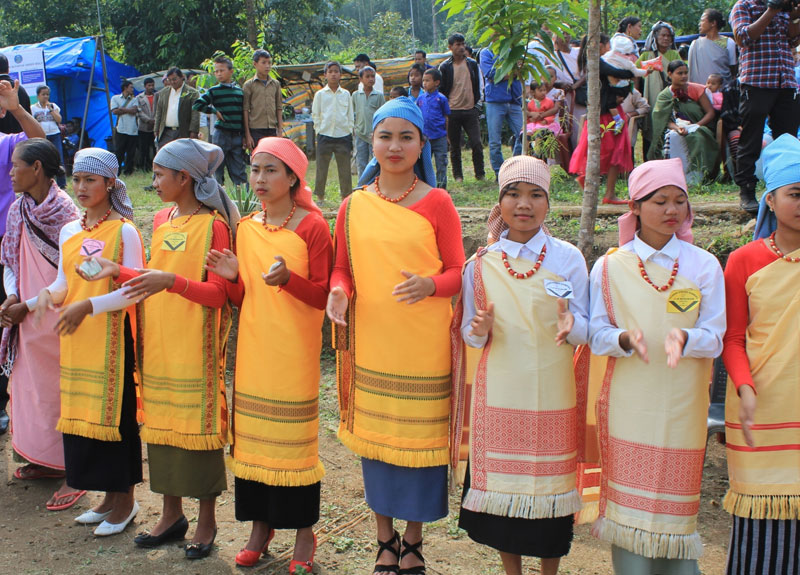 For 30 years, Plantina has run a little shop-café, popularly referred to as kong. These tiny, often makeshift cafés are run by hardworking women, who generally have a limited number of dishes they serve for the day, all of them very good. In Shillong, kongs are the lifeline of office goers, who have their favourites carefully marked out across the city, and make sure that there get there early enough before the food sells out, which it does very quickly. In 2011, after the first of the immensely successful Mei-Ramew food festivals, Plantina approached the organizers and had her kong included as a Mei-Ramew Café. Here, she cooks and serves small meals, and sells a few local products, including silkworms. She does not mention her husband, and I hesitate to ask. Her knowledge of silkworms, which she breeds and sells is something, she explains, that she inherited from her great-grandparents, which is as far back as her memory stretches. It was they, she recalls, that taught her which ones were edible, and which ones not, something she picked up as a small child. She describes the three kinds: bamon, yellow; ryndia, red and sajan, green, while our young interpreter tries not to giggle at this detailed discussion about silkworms.
For 30 years, Plantina has run a little shop-café, popularly referred to as kong. These tiny, often makeshift cafés are run by hardworking women, who generally have a limited number of dishes they serve for the day, all of them very good. In Shillong, kongs are the lifeline of office goers, who have their favourites carefully marked out across the city, and make sure that there get there early enough before the food sells out, which it does very quickly. In 2011, after the first of the immensely successful Mei-Ramew food festivals, Plantina approached the organizers and had her kong included as a Mei-Ramew Café. Here, she cooks and serves small meals, and sells a few local products, including silkworms. She does not mention her husband, and I hesitate to ask. Her knowledge of silkworms, which she breeds and sells is something, she explains, that she inherited from her great-grandparents, which is as far back as her memory stretches. It was they, she recalls, that taught her which ones were edible, and which ones not, something she picked up as a small child. She describes the three kinds: bamon, yellow; ryndia, red and sajan, green, while our young interpreter tries not to giggle at this detailed discussion about silkworms. 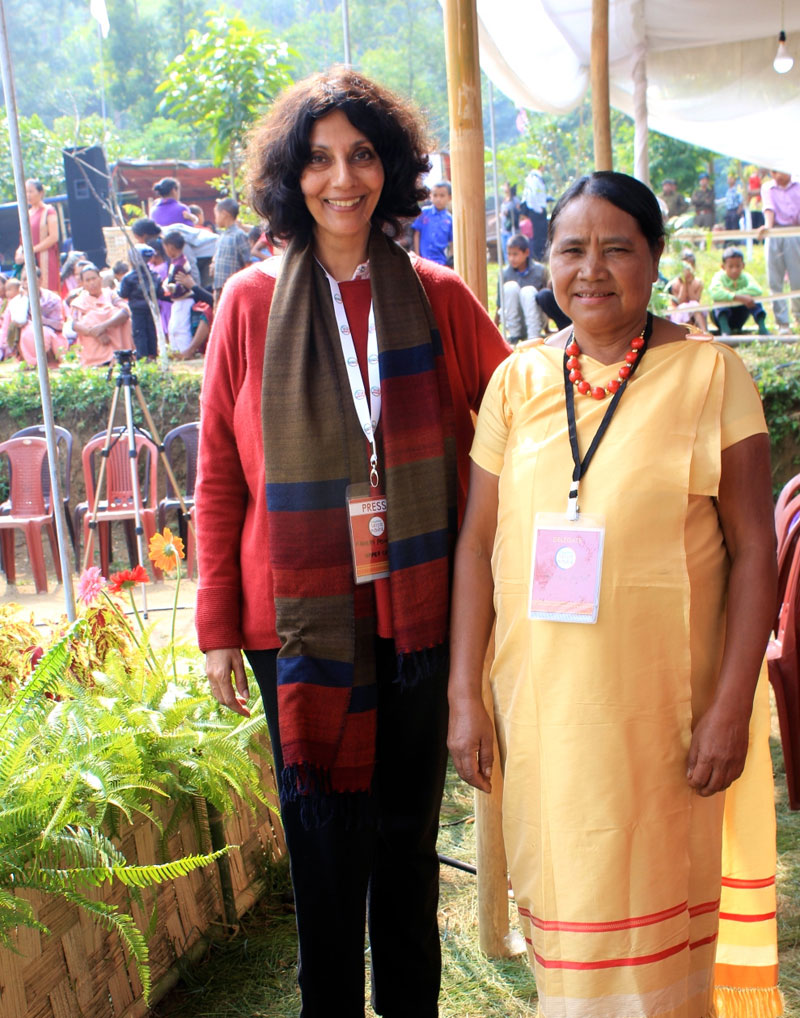
There are many ways to cook silkworms. Plantina explains they can be smoked, fried, or boiled and ground into a chutney with a special variety of onion, which is what she has just served us at the Taste Workshop. They can also be dried and preserved, she adds. These silkworms are a regular part of her diet, and of many others. The rich fats help address a variety of health issues and nutritional deficiencies, including low blood pressure and, according to her, are also good for the nerves. In addition to the silkworms, she also cultivates and sells mushrooms, which are always in demand, and a small selection of vegetables that she procures from other growers in the village –a little bit of kap rep bara, ‘working together’, or cooperation that is the work ethic of Khasi society. She sets aside a supply of dehydrated vegetables for the lean season, lives on what she earns from her café, and has managed to educate all her children. I am filled with admiration for this woman who has used the resources that her environment offered to build a life for herself and her children. She reminds me of other women I have met in rural Coorg, who manage rice fields, kitchen gardens and very small plots of coffee to bring good food to their tables and build a future for their children. There is a parallel too, in the “shared custodianship” of societies where women have a strong role. When I ask her what it means to her, addressing an audience of people from so many different parts of the world, she pauses for a moment, and her reply is filled with incredible generosity: she is happy she got to share what she has with so many people; she would like people to remember, and have something to take back with them. Kong Plantina, full of initiative, enterprise and confidence is a very modern woman –in another part of the world, her café may well have been a high-end restaurant serving exotic food.
This article appeared in UpperCrust Magazine, Volume 17, First Quarter 2016.
Image Credits: K.P.Ponnapa

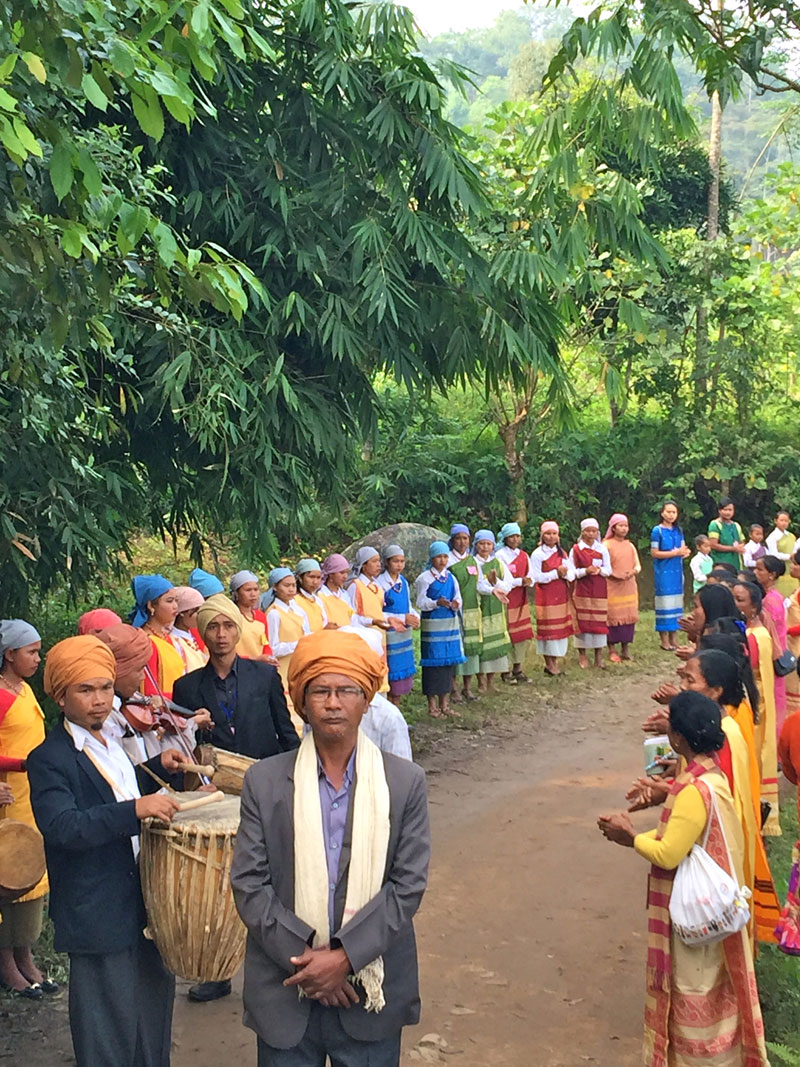
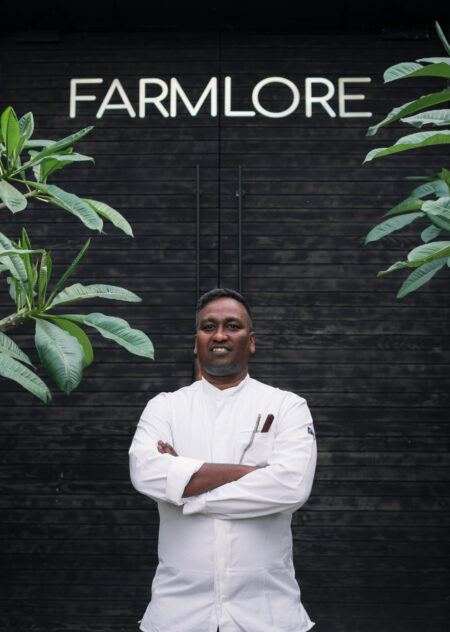
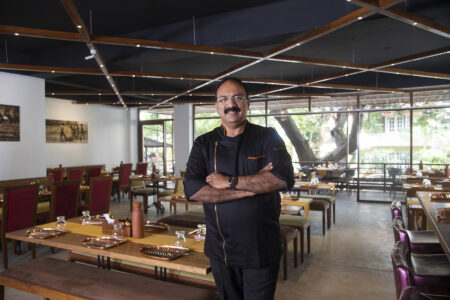
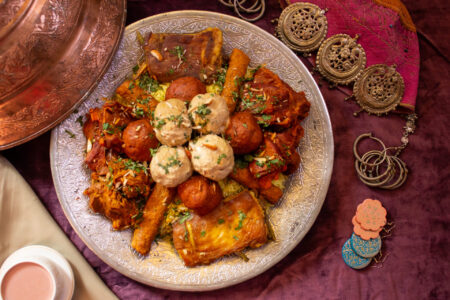
A beautiful, well written story, filled with rich imagery.